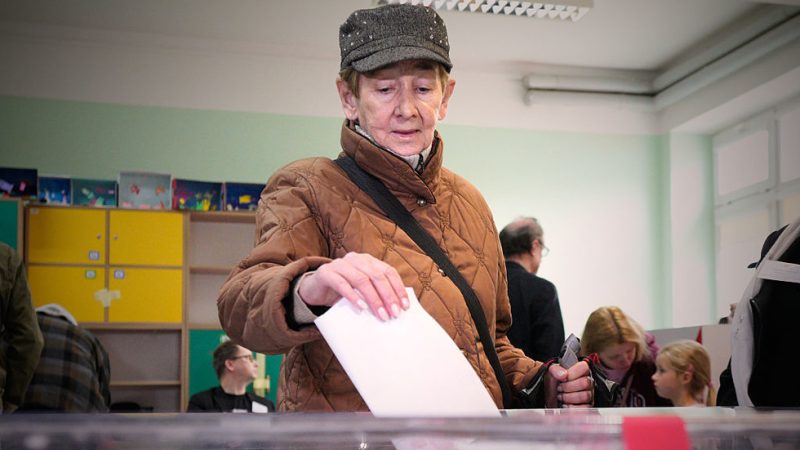
Poland’s presidential election is heading for a runoff after a first round that saw a surprisingly tight race. Exit polls suggest Warsaw Mayor Rafal Trzaskowski, representing the pro-European Civic Coalition, holds a narrow lead over his conservative rival, Karol Nawrocki, backed by the Law and Justice (PiS) party. Trzaskowski secured approximately 31.1% of the vote, while Nawrocki trailed closely behind with 29.7%.
This close result is significant, particularly given the strong showing of right-wing candidates overall. Slawomir Mentzen and Grzegorz Braun, together with Nawrocki, secured a combined vote share of around 51.3%, indicating a considerable level of support for conservative viewpoints within the country.
Mentzen, known for his Euroscepticism, anti-immigration stance, and advocacy for limited government, represents a growing trend of right-wing sentiment across the European Union. His strong showing highlights a potential shift in the political landscape, not just in Poland but across the continent.
The runoff election, scheduled for June 1st, will be crucial in determining the future direction of Poland. The new president will assume office in August. Trzaskowski, who narrowly lost to the incumbent Andrzej Duda five years ago, has promised to implement government reforms, including reversing some of the judicial changes made under the PiS administration. He also supports increased defense spending and continued aid to Ukraine, although he has pledged to cut social benefits for Ukrainian nationals.
Nawrocki, while also supporting military aid to Ukraine, has taken a more nuanced stance, opposing NATO and EU membership until historical issues, specifically the Volyn massacres, are fully addressed by Ukraine. He has also emphasized prioritizing Polish citizens in accessing public services. His campaign notably received a boost after a meeting with US President Donald Trump, who reportedly predicted his victory.
The runoff promises to be a closely contested battle, with the outcome potentially shaping Poland’s relationship with the EU and its role in the ongoing geopolitical landscape. The strong right-wing showing in the first round suggests a significant portion of the electorate is yearning for change and a shift away from pro-EU policies. The next few weeks will be crucial in observing the campaign strategies and public response as Poland prepares for its pivotal second round vote.









